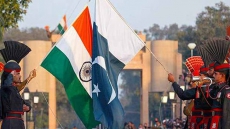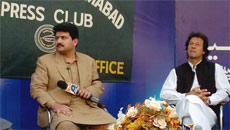India is among 193 countries "concerning" whom the US National Security Agency (NSA) has been authorised to intercept information by the Foreign Intelligence Surveillance Court, according to a new report.
The NSA has exempted only four countries - Britain, Canada, Australia and New Zealand - "in a group known collectively with the United States as the Five Eyes" from such surveillance, the Washington Post reported.
The US has had broad no-spying arrangements with these four countries, the Post said, citing a new set of top secret documents leaked by Edward Snowden, former NSA contractor-turned- whistleblower who has been given asylum in Russia.
India figures in the list of "193 foreign governments as well as foreign factions, political organisations and other entities that were part of a 2010 certification approved by the Foreign Intelligence Surveillance Court", an accompanying exhibit cited by the newspaper said.
"These are the entities about which the NSA may conduct surveillance, for the purpose of gathering foreign intelligence", the exhibit said.
"Each year a new certification must be approved by the court to permit such surveillance under Section 702 of the FISA Amendments Act," it said.
India's Bharatiya Janata Party (BJP) was one of the six non-US political parties across the globe that the NSA received official permission in 2010 to covertly spy upon, the Post reported.
The other five political parties that the NSA had authority to spy upon were Lebanon's Amal which has links to Hezbollah, the Bolivarian Continental Coordinator of Venezuela with links to FARC, Egypt's Muslim Brotherhood, and National Salvation Front as well as the Pakistan People's Party.
The list also authorised spying on 20 organisations "not substantially composed of US persons", including the UN, the World Bank, the International Monetary Fund, the European Union and the International Atomic Energy Agency.
"The documents underscore the remarkable breadth of potential 'foreign intelligence' collection," the Post said, noting that though the law was amended to devise "a surveillance programme devoted to countering terrorism, the result was a programme far broader in scope", the Post said.





